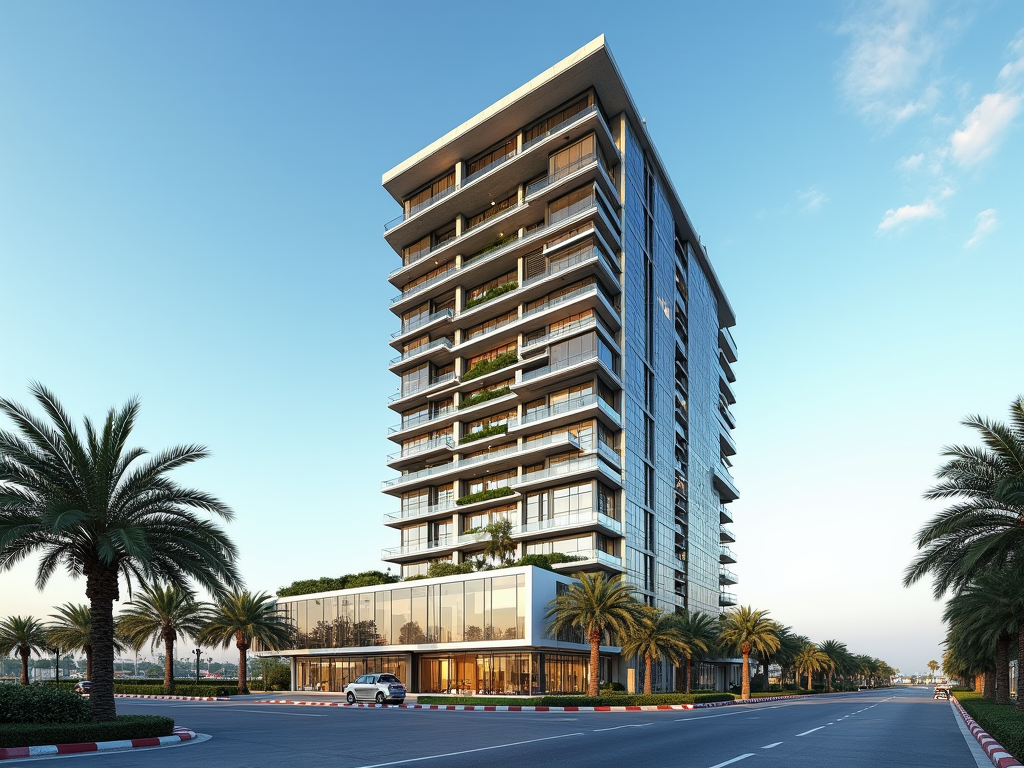Investing in property in Dubai’s freehold zones provides an excellent opportunity for both local and international buyers. Freehold zones allow foreign investors to own property with full ownership rights, making it a lucrative option for high return on investments. This article aims to guide you through the process of purchasing property in these zones, addressing necessary steps and key considerations while ensuring you are well-informed for your investment journey. We’ll cover vital topics such as understanding freehold zones, the purchasing process, legal requirements, financing options, and ongoing responsibilities of property ownership in Dubai.
Understanding Freehold Zones in Dubai

Freehold zones in Dubai are designated areas where overseas investors can buy property and gain full ownership rights. Unlike leasehold property, which typically involves a fixed-term ownership, freehold property allows you to buy and sell your property without restrictions. Dubai has several freehold areas such as Dubai Marina, Jumeirah Lake Towers, and Downtown Dubai, which are highly sought-after by buyers. To successfully navigate these zones, it is essential to understand the local laws and regulations governing property ownership. In this section, we’ll explore key factors influencing the appeal of freehold zones for property buyers:
- Ownership Rights: Total ownership allowing resale and rental.
- Capital Growth: High potential for property value appreciation.
- Luxury Amenities: Access globally recognized lifestyle features and facilities.
- Strong Mortgage Options: Attractive financing plans for foreign investors.
- Vibrant Economy: A robust economy supported by diverse sectors.
The Purchasing Process

Buying property in Dubai’s freehold zones can be a straightforward process if approached systematically. The following steps outline the general purchasing process:
- Research: Conduct thorough research on the property market in your desired freehold zone. Websites, local real estate agents, and property exhibitions can provide invaluable insights.
- Engage a Real Estate Agent: Collaborate with a reputable property agent who understands the local market and can help negotiate the best deal.
- Property Viewing: Schedule viewings of potential properties to assess their suitability and condition.
- Offer and Negotiation: Make an offer on the property, and be prepared to negotiate terms, including price and payment plans.
- Sales Agreement: Once the offer is accepted, both buyer and seller will sign a sales agreement, securing the terms of the sale.
- Transfer of Ownership: Book an appointment with the Land Department to officially transfer ownership once payment is made.
When investing in real estate in Dubai, there are several legal requirements to be aware of to ensure a seamless purchasing experience. First, all foreign buyers should obtain an investor visa, which allows residency and eligibility to purchase property in freehold zones. You’ll also need to provide relevant documents such as copies of your passport, proof of income, and bank statements to facilitate the purchase. It is advisable to enlist the services of a legal advisor familiar with Dubai’s real estate laws to ensure that the transaction complies with local regulations. Furthermore, understanding the associated fees—such as registration, service charges, and maintenance fees—is crucial to budgeting appropriately for your property investment.
Financing Your Property Purchase
Financing your property purchase in Dubai can be approached through various avenues, depending on your financial situation and preferences. Many banks and financial institutions in Dubai offer mortgage options for foreign buyers, which can cover up to 80% of the property value. To qualify for a mortgage, you must demonstrate a steady income, a positive credit score, and adequate debt-to-income ratio. Additionally, be mindful of the mortgage costs, such as down payment amounts, interest rates, and administrative fees. If you prefer alternative financing methods, exploring payment plans directly with property developers is another option. Understanding all your financing options ensures you make well-informed financial commitments.
Ongoing Responsibilities of Property Ownership
After successfully purchasing property in Dubai’s freehold zones, it’s vital to recognize your ongoing responsibilities. Homeowners must adhere to community rules and regulations which may include maintenance obligations, service fees, and adherence to zoning laws. Regular property maintenance not only preserves the value of your investment but also enhances your living experience and neighborhood aesthetic. Furthermore, if you plan to rent out your property, familiarize yourself with tenant rights, your obligations as a landlord, and the local property rental laws. Consistency in managing your property leads to better rental yields and long-term capital appreciation.
Conclusion
Purchasing property in Dubai’s freehold zones opens a world of opportunities for investors seeking full ownership and high returns. By understanding the processes, legalities, financing options, and ongoing responsibilities associated with property ownership, you are well-equipped to make informed decisions. Whether you aim for a luxury residence or an investment property, embracing the Dubai real estate market can lead to fruitful ventures. As you embark on this journey, consider engaging professionals to navigate the complexities and ensure a successful acquisition.
Frequently Asked Questions
1. Can foreigners buy property in Dubai?
Yes, foreigners can buy property in designated freehold zones in Dubai, gaining full ownership rights and no property restrictions.
2. What documents do I need to purchase property in Dubai?
You will need to provide a valid passport, proof of income, bank statements, and other documents as requested by your chosen real estate agent or legal advisor.
3. Are there any fees associated with purchasing property in Dubai?
Yes, buyers should expect registration fees, agent commissions, and maintenance fees. Additionally, mortgage seekers may incur application and registration fees.
4. How long does the property buying process take?
The property buying process in Dubai typically takes around 4 to 6 weeks, depending on negotiations, financing, and the completion of necessary paperwork.
5. Is it easy to rent out property in Dubai?
Yes, renting out property in Dubai is relatively straightforward, but landlords must adhere to local rental regulations and obligations while managing tenant relationships.
